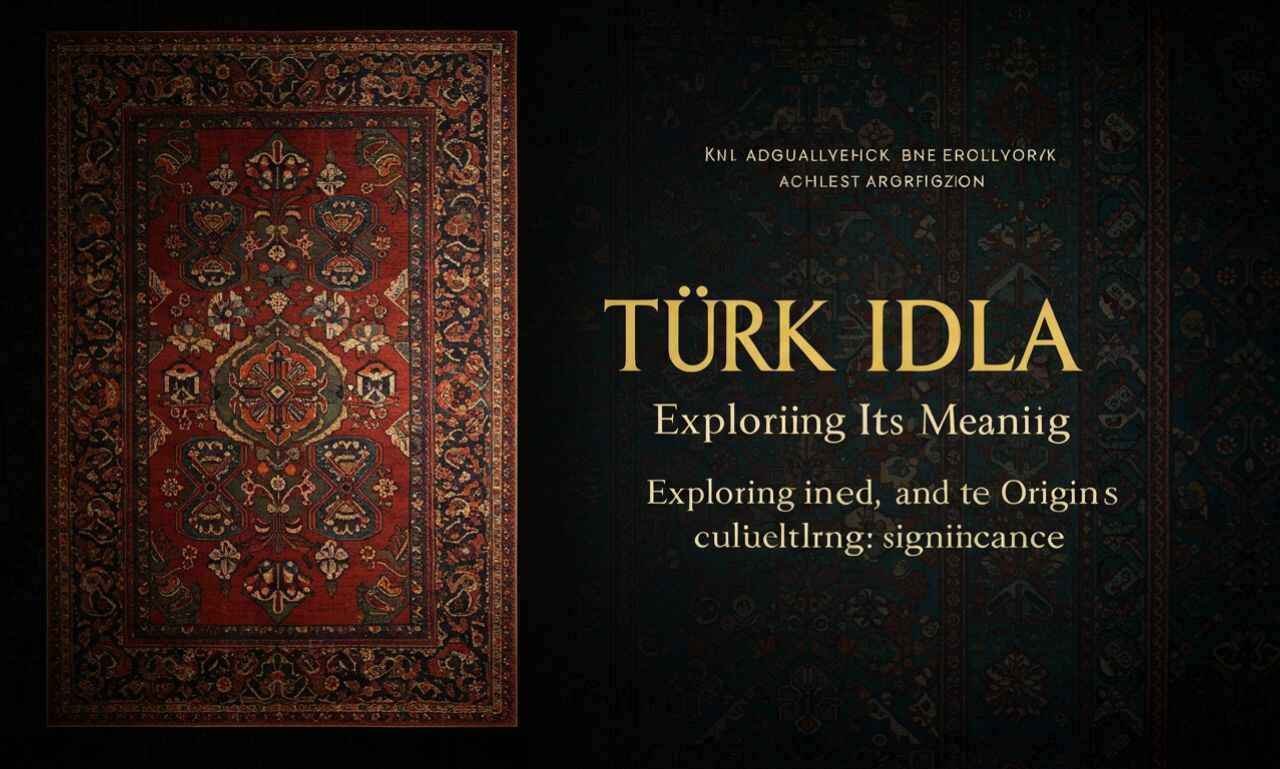The phrase “Tü-rk Idla” is gaining attention across blogs, forums, and social media platforms. Many people search for its meaning, cultural background, and modern usage. While the term may look mysterious, it reflects a growing trend in Turkish identity, language creativity, and online communities.
In this blog, we will explore the meaning of Tü-rk Idla, its cultural significance, and why it continues to attract interest worldwide.
What Is Türk Idla?
The term Tü-rk Idla combines two elements:
-
“Türk”: Refers to Turkish people, culture, and national identity.
-
“Idla”: A stylized or modern expression without a strict dictionary definition, often associated with creativity or online slang.
Together, the phrase can be interpreted as an expression of Turkish pride, a nickname, or a digital identity marker in online communities.
Origins of the Phrase Türk Idla
Although the exact origin of Türk Idla is not clear, several possible explanations exist:
-
Modern Slang – It could have emerged as part of evolving Turkish internet language.
-
Phonetic Styling – Some suggest “Idla” is a playful spelling used in online groups.
-
Community Usage – The phrase may have started with small circles before spreading across platforms.
Regardless of its beginnings, its meaning today is shaped by how people adopt and share it online.
Cultural Importance of Türk Idla
The popularity of Tü-rk Idla highlights broader themes in Turkish culture:
1. Identity and Belonging
Many Turkish users employ the phrase to showcase pride in their heritage, especially in global online spaces.
2. Language Evolution
Modern Turkish language, like all languages, adapts to new contexts. Words such as “Idla” illustrate how communities create new meanings.
3. Online Community Building
Using Tü-rk Idla in usernames, hashtags, or blogs creates micro-communities bound by cultural pride and digital creativity.
Türk Identity in the Digital Age
Today, being Turkish is not just about tradition but also about modern expression. Online, phrases like Tü-rk Idla represent how younger generations combine heritage with global internet culture.
For Turkish communities abroad, it becomes a symbol of connection to their roots while participating in modern digital spaces.
Why Türk Idla Is Popular
The ongoing interest in Türk Idla can be explained by several factors:
-
Mystery – Its unclear meaning sparks curiosity.
-
Catchiness – Short and unique, it stands out online.
-
Cultural Pride – It connects users with their Turkish identity.
-
Viral Nature – Like memes or hashtags, it spreads easily across platforms.
Tü-rk Idla in Global Context
Interestingly, non-Turkish audiences are also encountering the phrase. With Turkish dramas, music, and cuisine gaining global popularity, curiosity about Turkish culture and language is higher than ever. Terms like Tü-rk Idla benefit from this rising global interest.
SEO Value of Türk Idla
From an SEO perspective, phrases like Türk Idla are valuable because:
-
They are unique keywords with low competition.
-
They attract both Turkish and international audiences.
-
They can be connected with related searches like Turkish identity, modern Turkish slang, and digital culture.
For bloggers, businesses, or cultural websites, writing about Türk Idla is an opportunity to rank higher in search results while offering valuable insights.
Lessons from the Phrase Türk Idla
-
Language Is Dynamic – New phrases can gain meaning quickly in online culture.
-
Identity Is Expressed Digitally – National pride and cultural roots often surface in online nicknames and terms.
-
Community Creates Meaning – A word becomes powerful when many people adopt it.
Conclusion
The phrase Türk Idla may not yet have a fixed dictionary meaning, but its cultural and digital relevance is undeniable. It reflects the fusion of Turkish pride, creativity, and online trends.
Whether used as a hashtag, a username, or a symbol of cultural identity, Tü-rk Idla demonstrates how language adapts and grows in the digital age. For anyone curious about modern Turkish expressions, this phrase is a perfect example of how words can unite communities, spark curiosity, and create lasting cultural impact.
